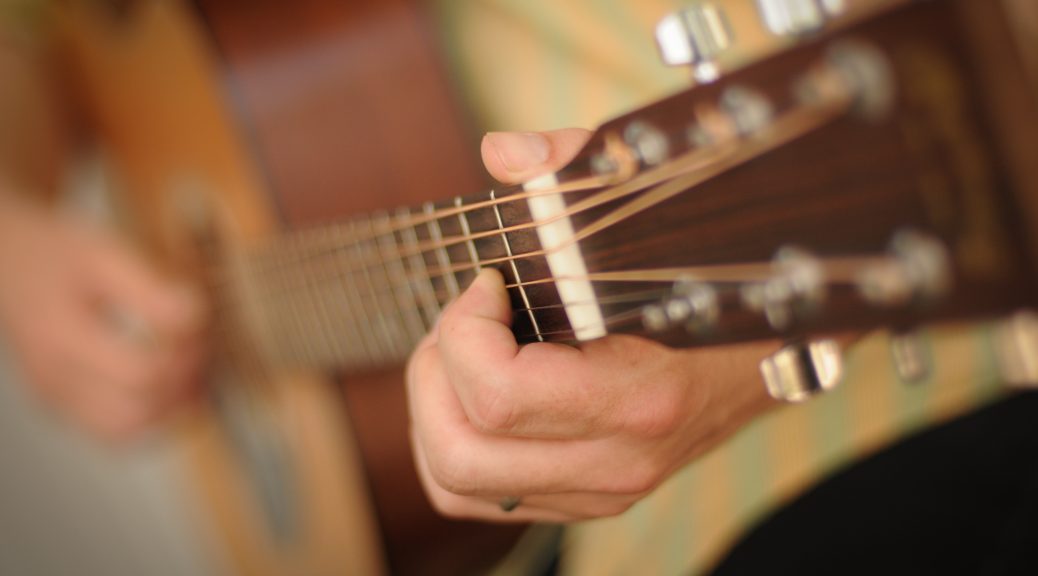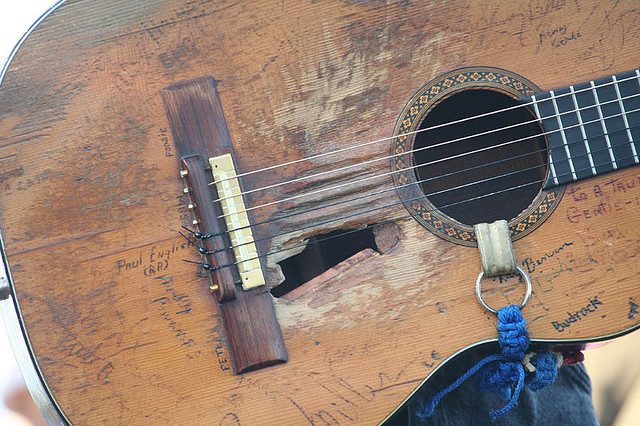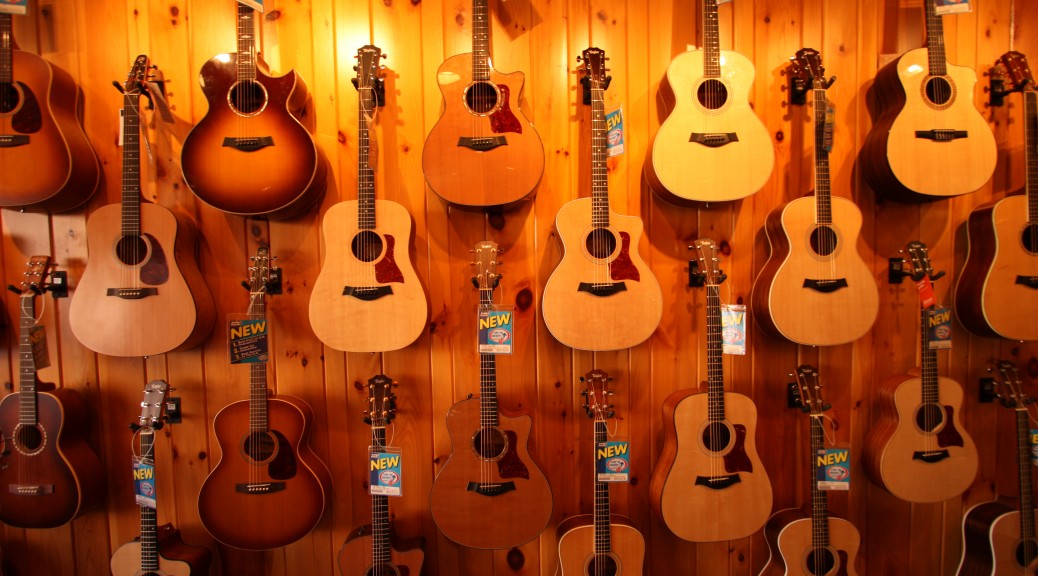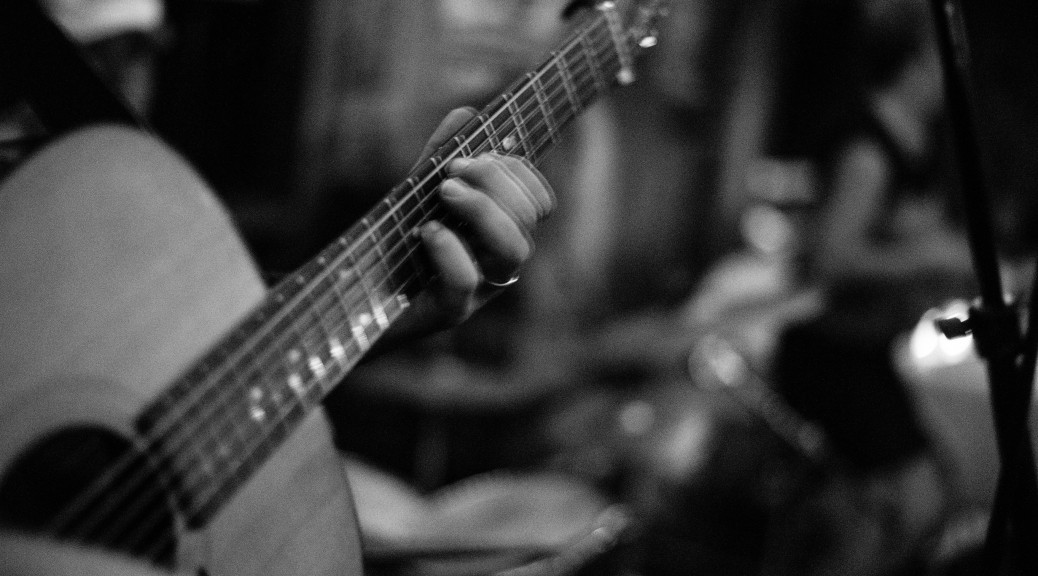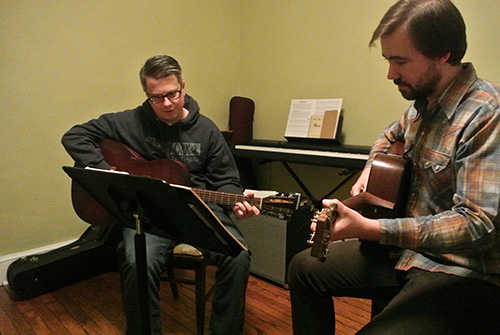Many people who are new to playing guitar ask me about how to go about buying a guitar, what type of guitar to buy, what price range, etc. In this post, I’ll give you some advice on how to do just that. Also, if you don’t want to go full blast into purchasing a guitar you might want to ask around and see if anyone you know may be willing to loan you a guitar that they might not use very often.
Where to buy a guitar?
In the Baltimore area, the biggest guitar retailers are Guitar Center in Towson and Glen Burnie, and Bill’s Music in Catonsville. Two other favorite places are Appalachian Bluegrass in Catonsville and Music-Go-Round in Cockeysville. In Baltimore City there there are two small music shops: Ted’s Musicians Shop , and Brothers Music. It’s also a great idea to check craigslist for a used guitar, but always examine it and try it out before you buy!
Electric vs. Acoustic, what’s the difference?
Whether to buy and electric or acoustic guitar for a beginner depends in large part on the style of music that they want to play. Someone wanting to play rock, jazz, or blues, would most likely want to buy an electric whereas someone wanting to play folk, classical, or bluegrass would be interested in an acoustic.
Electric and acoustic guitar strings in standard tuning are tuned exactly the same and therefore the notes on the fretboard are identical. So learning the basics on an acoustic are pretty much the same as learning the basics on an electric. But there are some differences in regards to playability, note range, volume, and tonal quality.
Some benefits in starting with an electric guitar:
- The smaller strings on the electric make it easier to play certain chords and to bend the strings.
- When it’s not amplified, electrics can be fairly quiet which can allow you to not disturb your roommates or neighbors while practicing.
- It’s easier to match the tone quality of songs that use electric guitar.
- The body shape of an electric allows you to reach higher notes on the fretboard.
Some benefits of starting with an acoustic guitar:
- The strings are thicker and better suited for finger-style playing.
- It’s loud enough on its own in small settings, so there is no need for an amplifier.
- It’s simpler than an electric, therefore there are fewer components that could break or cause issues.
- You can match the acoustic tone found on many recordings.
Whether to buy and electric or acoustic guitar for a beginner depends in large part on the style of music that they want to play. Someone wanting to play rock, jazz, or blues, would most likely want to buy an electric whereas someone wanting to play folk, classical, or bluegrass would be interested in an acoustic.
Body Size
The size of the body of the guitar can be an issue particularly for children, but also for adults who may prefer a smaller over a larger body size and vice versa. There are adult size acoustic guitars that are smaller than the standard dreadnought type, the largest and probably the most common body size. The best thing to do is to try out different types and see which one feels the most comfortable.
When trying to size up a guitar for a child, please see my post on Buying a Guitar for a Child (coming soon).
What is the price range?
I recommend spending between $100 to $250 for a starter guitar, although you may find some decent used ones for under $100. I’d say stay away from the super-cheap new guitars.
Which brands to buy:
For brands in the $100 to $250 range for acoustic guitars, in my humble opinion from what I’ve observed through years of teaching beginners, Yamaha is a favorite. Epiphone, Washburn, and Fender are decent. Hohner and Mitchell (Guitar Center’s brand I believe) are ok too. Stay away from Rogue, First Act, and Oscar Schmidt (most of these brands retail below $100), they seem to always have issues. There are lots of other brands as well and most are fine as starter guitars. Basically, you want something that is functional and not going to have issues or fall apart after a few months.
In my next post, I’ll discuss a few tips on examining the condition of a new or used guitar.
